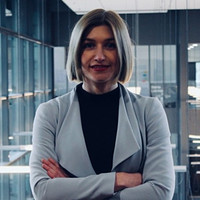Re-developing modules during the pandemic: The bright side
Imagine you are a first-year international student starting to study IHRM at Saxion during the pandemic. You do not know anyone in your class, at Saxion or in the Netherlands. Maybe you couldn’t even travel to the Netherlands for the start of your course. Now, you have to prepare for the start of the course.
First of all, you receive a link where you can find the books you have to buy for the first year. But you cannot find an online-store which can deliver it to your address in time. Or you just moved to the Netherlands and had to buy furniture, the deposit and due to Covid19 it does not look like that you will find a part-time job very soon. You ask yourself if there is a way that you can take part in the course without buying the book:
How can Saxion help students to have an easier start into their study?
One great opportunity are open access study material. For the course International Business & Ethics for 1st Year IHRM students the AMA introduced an open accessible book. Consequently, Students saved about 55€ and by using a digital book we do something to help the environment. Have you recognized as teacher that especially in the first quarter in week 4 some students still do not have the book, because of various reasons. One can be for example, that there are delivery problems. With an open accessible book these problems are old hat.
“The advantages of the online book were its easy accessibility and navigation. The chapters had a clear structure and the use of real-life examples (mostly from newspapers or magazine articles) helped solidify the student’s understanding of the theory. However, some sections were rather lengthy, and the use of an online book can also be a strain on the eyes for people who spend a lot of time at the computer every day. A mix of different sources might be the best option.”
As lecturers, we have to say it was really difficult to create a personal connection in the digital world with the 1st years compared to the 2nd and 3rd year students. Think about it, 1st year students have never seen you before. Therefore, we decided to share a picture of us as lecturers on the BB page of the course which was aligned with the current situation of the pandemic. Furthermore, it is important to take the time in the beginning to get to know each other. One recommendation here is to think about a creative way to do this introduction to make sure that students do not have to repeat themselves in every course. That would be really boring. During the course, we often made use of Breakout groups to give students the chance to get to know each other better as well.
“The teacher continually had her camera on,…seeing the teacher at all times helped building more of a connection.”
We are sure that everyone at Saxion experienced some challenges while teaching online, but we should not forget that it also provides us new opportunities. Have you ever faced the challenge of teaching three or more 1st year classes and you wanted to invite a guest speaker, but it was too much trouble to schedule it and find a room which fits all the students. Due to the current situation and all the Covid19 measures we recorded a guest lecture on Ethics in form of a podcast. In addition, working in a digital environment made it possible to invite a guest lecturer from overseas which was great for the course. In line with the guest lecturer, we gave students the assignment to create a podcast themselves.
“The recorded guest lecture was a nice change from familiar teaching structures. It was easy to listen to and follow and hearing first-hand experiences from someone who works in HR offered some new perspectives on what to expect from the job. The podcast was also a nice addition to the final group project. Most students had never done anything like this and it was fun to figure out a concept on how to approach this podcast.”
These examples show that this pandemic and the open access material can help us to innovate our courses. With our story of the IB&E course, we would like to highlight the importance of course innovation within Saxion and want to call for collaboration between the Teaching and Learning Centre, research groups (e.g. Smart Industry & Human Capital; Innovative and Effective Education) and lecturers on this topic.
Academy Mens & Arbeid
Katharina Thüsing & Caroline Haafkens (Lecturers IHRM)
A special thank you to Tabea Lauber (IHRM student) for her contribution on this article.


Caroline Haafkens
AMA Lecturers IHRM